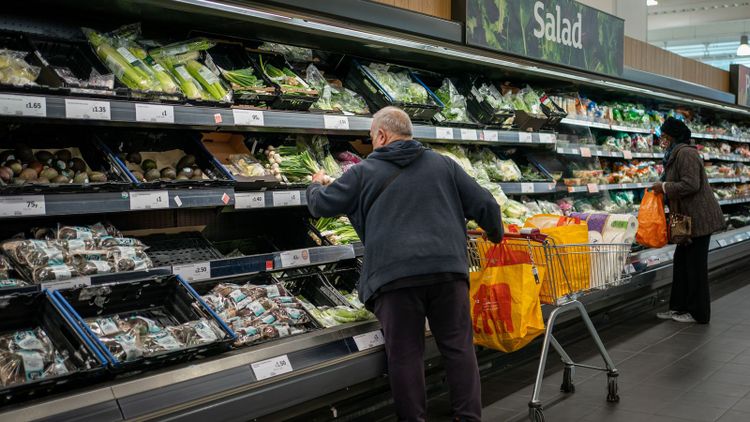Food prices still rising faster than wages although overall rate of retail inflation falls

New data has revealed that the cost of food continues to increase at a quicker rate compared to the growth of wages.
The BRC stated that there was a general increase in food prices, which went up by 11.5% in August. This was a decrease from the 13.4% rise seen in July.
However, the latest statistics from the Office for National Statistics (ONS) reveal that the yearly increase in average total income climbed by merely 8.2% between April and June.
The rate of increase in prices for fresh food dropped to 11.6% in August, compared to the 14.3% rise seen in July.
The inflation rate for ambient foods, which refers to items that are typically kept at room temperature, saw a decline from 12.3% in July to 11.3% in August.
In the meantime, the BRC reported that the rate of price increases in stores has dropped to its lowest level since October of the previous year, yet continues to rise considerably.
The cost of goods and services increased by 6.9% in the 12-month period ending in August, which is a decrease compared to the 8.4% rise observed in July.
Despite the decrease in retail inflation, it should not be assumed that products are becoming more affordable. Rather, it indicates that the price growth has been relatively slower from September 2022 to August 2023 compared to the preceding period from August 2022 to July 2023.
The BRC revealed that the primary cause of the decline in retail inflation was the slower increase in prices of fresh food.
The British Retail Consortium (BRC) stated that inflation remained steady at 4.7% for items excluding food.
Find out more: Energy price limit decreasesMany people face the possibility of falling ill due to their reluctance to switch on the heating when temperatures dropThe Labour party claims that the Conservative party's disarray and ineffectiveness have resulted in a decline in living standards for families.
Good news for customers
Consumers received positive updates as the inflation of shop prices in August decreased to its lowest point since October 2022, stated Helen Dickinson, the chief executive of the consortium.
This was influenced by the decrease in food inflation, specifically for items like meat, potatoes, and certain types of cooking oils.
The statistics would have shown even lower results if the government hadn't raised alcohol taxes earlier this month.
She mentioned that fundamental elements of hygiene and beauty products had experienced a decrease in cost, resulting in a reduction of price hikes within these product categories.
We recommend utilizing the Chrome browser to enhance your video player accessibility.
The prices of clothes and shoes rise due to inflation.
However, there was a rise in the inflation rate for clothing and footwear after the conclusion of the summer sales.
According to Ms. Dickinson, the continuous decline in inflation can be attributed to the diligent actions undertaken by retailers. However, there still remain challenges for retailers in managing supply chain risks.
Russia's decision to exit the Black Sea Grain Initiative and its focus on Ukrainian grain facilities, alongside subpar harvests across Europe and other regions, may present possible obstacles to achieving reduced inflation.
If the chancellor does not step in, there is a possibility of a £400m increase in business rates starting from next April, which would unquestionably hinder endeavors to address inflation.









































